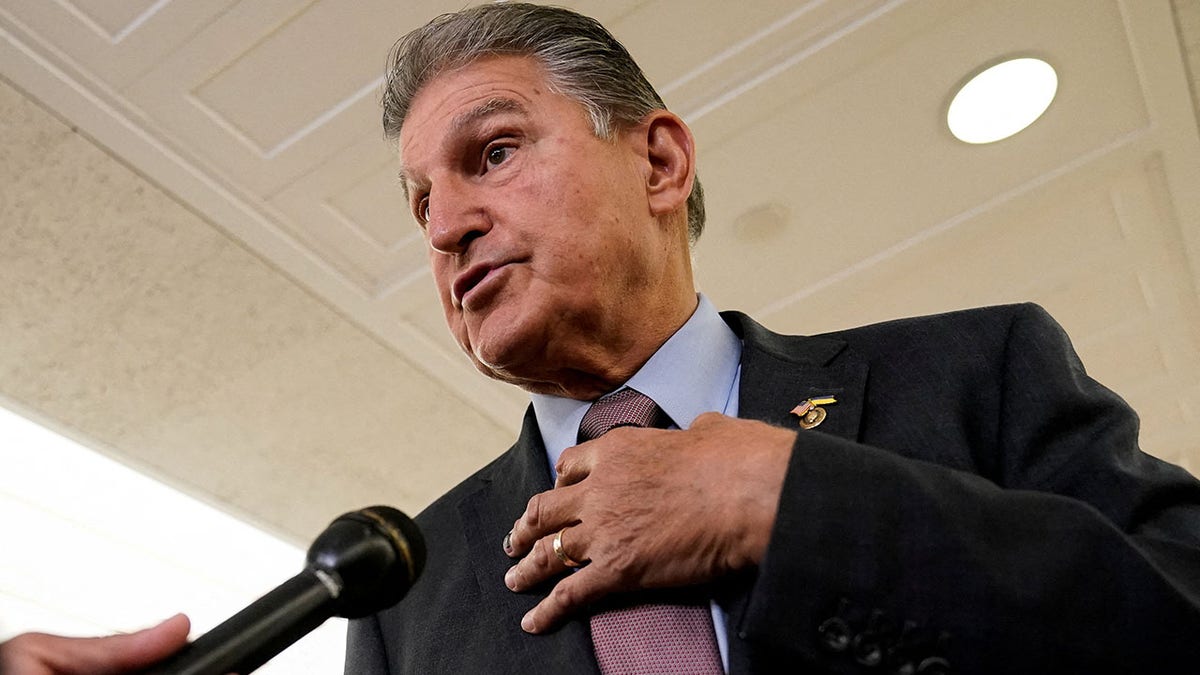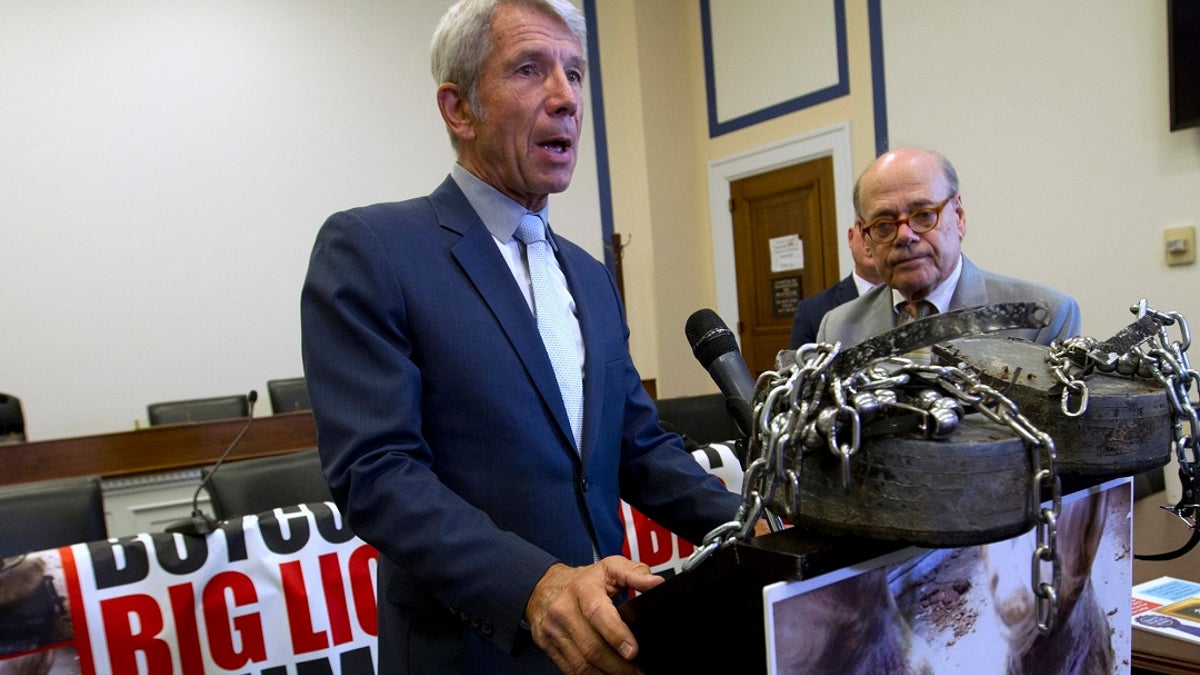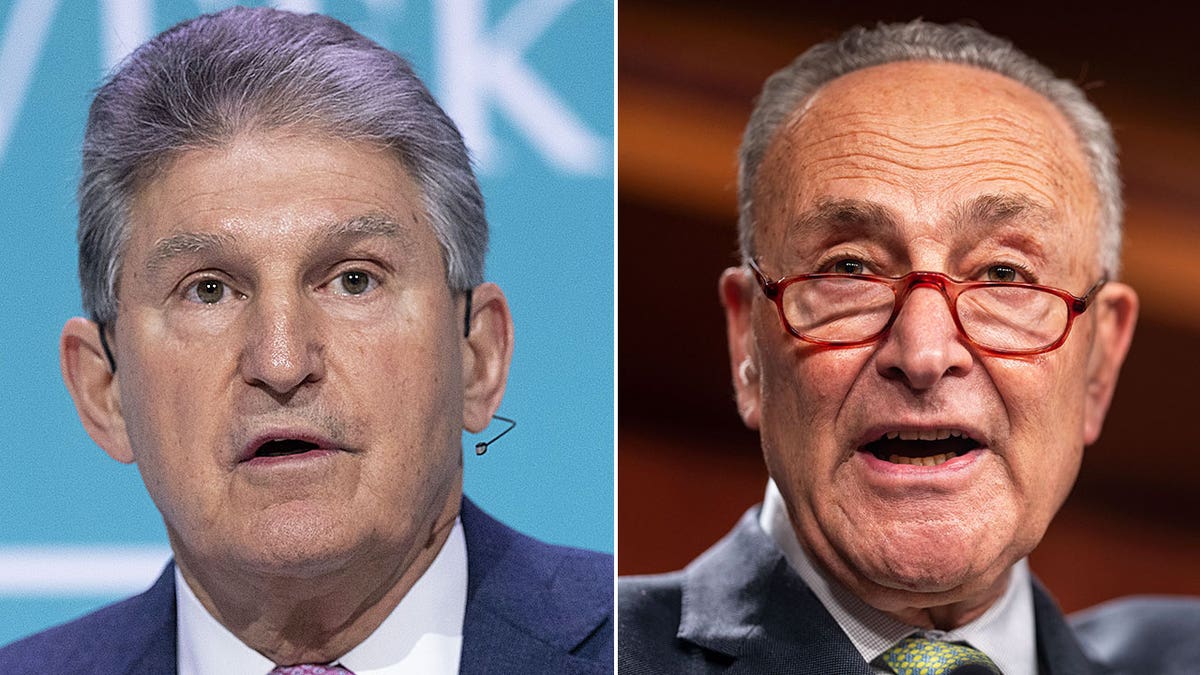Manchin's $433 billion reconciliation bill could be costly to West Virginia, some residents worry
West Virginia residents weigh in on proposed reconciliation bill.
The $739 billion tax increase, climate change and health care bill agreed to by Sen. Joe Manchin, D-W.Va., and Majority Leader Chuck Schumer, D-N.Y., is on a glide path toward passage in the House, but divisions between progressive and moderate Democrats remain an obstacle.
Because Democrats hold a slight 220-210 majority in the House, Speaker Nancy Pelosi, D-Calif, can withstand only four Democratic defectors when the entire chamber is voting, given likely unanimous GOP opposition.
The slim cushion means Pelosi needs just about every Democrat to vote in favor of the Manchin-Schumer bill when it comes up for an expected vote Friday.
That reality has mobilized outside groups with a vested interest in seeing the bill fail.
HOUSE REPUBLICANS, HEALTH CARE GROUPS WHIPPING AGAINST $739B MANCHIN-SCHUMER BILL

House Speaker Nancy Pelosi holds her weekly press conference on Capitol Hill July 29, 2022. (Saul Loeb/AFP via Getty Images)
The health care and pharmaceutical industries, in particular, are working hard to pressure moderate House Democrats into opposing the bill.
Health care lobbyists are targeting Democrats representing swing districts or moderates who are retiring or have lost their primaries. The argument is largely focused on selling lawmakers that the bill will adversely impact seniors, a core voting block for both Democrats and Republicans.
"Health plans and drugmakers are going to have to navigate more government in Medicare Part D, and they are concerned this will mean fewer benefits and care for our seniors," said a source familiar with the health care industry and its lobbying efforts and messaging. "Not to mention, seniors will now be facing higher premiums during historic inflation."
Topping the list of targets is a cadre of moderate House Democrats who previously raised concerns about allowing Medicare to negotiate the price of prescription drugs, a central provision of the Manchin-Schumer bill.

Sen. Joe Manchin speaks to reporters outside a U.S. Senate Energy and Natural Resources Committee hearing on Capitol Hill, July 19, 2022. (Reuters/Elizabeth Frantz)
The pressure campaign does not appear to be making significant progress, however.
Rep. Kurt Schrader, an Oregon Democrat and target of the efforts, threw his support behind the legislation Monday. Schrader, who is retiring after losing to a more progressive primary challenger, was seen as a key holdout since he had voiced apprehensions about the prescription drug pricing plan.
"The Inflation Reduction Act will reduce the deficit by hundreds of billions of dollars while lowering prescription drug costs for American families and strengthening health care," Schrader and other members of the moderate Blue Dog Coalition said in a joint statement. "We remain laser-focused on solving our nation’s major economic, energy and climate problems for future generations and will move swiftly to send this bill to the president’s desk."

Rep. Kurt Schrader speaks during a news conference in Washington, July 24, 2019. (AP)
Outside of prescription drugs, two moderate Texas Democrats are also facing pressure to oppose the bill over its inclusion of a fee on methane emissions.
The tax is seen as particularly burdensome to fossil fuel industries that employ thousands of workers in the border region between Texas and Mexico.
Apart from moderates, support for the Manchin-Schumer bill is also not a given from the Democratic Party's progressive faction.
While most far-left lawmakers are expected to back the legislation, some have criticized it for being too friendly to the fossil fuel industry.
Sen. Bernie Sanders, I-Vt., lambasted the bill last week during a marathon voting session as not going far enough to combat climate change.

Sen. Joe Manchin and Senate Majority Leader Chuck Schumer (F. Carter Smith/Bloomberg via Getty Images I Kent Nishimura/Los Angeles Times via Getty Images)
"This bill, as currently written, includes a huge giveaway to the fossil fuel industry," Sanders said. "It's a slap in the face to the communities fighting to protect themselves from filthy fossil fuels."
Sanders eventually wound up voting for the bill after his attempts to have it amended to prevent subsidies from going to energy companies were defeated. The Vermont independent's progressive allies in the House, however, are significantly more hard-line.
CLICK HERE TO GET THE FOX NEWS APP
Last year, six far-left House Democrats nearly tanked President Biden's bipartisan infrastructure bill over climate concerns. The bill would have failed in the House if not for the support of 13 moderate Republicans.
GOP leaders have made clear that Pelosi can expect no such help on the Manchin-Schumer bill.
"House Republicans will stand up against this tax on American families and will be opposing this bill," said GOP Whip Steve Scalise, R-La.














































